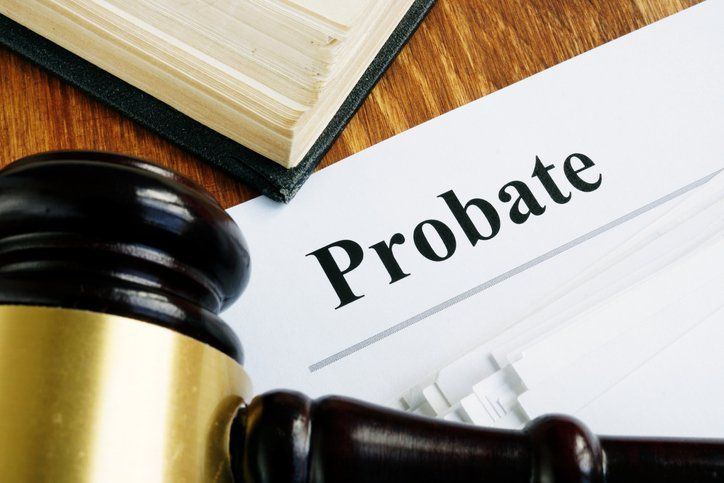Steps to Take if You Suspect Nursing Home Neglect
What Should You Do if You Suspect Nursing Home Neglect?
Discovering potential nursing home neglect affecting your loved one can be devastating. Understanding the proper steps to take when you suspect mistreatment helps protect vulnerable residents and ensures that their rights are upheld. This comprehensive guide outlines the essential actions you should take if you believe your family member is experiencing nursing home neglect.
Nursing home residents deserve safe, dignified care that meets their basic needs and preserves their well-being. When facilities fail to provide adequate care, residents may suffer serious harm. Recognizing the warning signs and taking swift action can make the difference between ongoing harm and proper resolution.
Recognizing the Warning Signs of Nursing Home Neglect
Nursing home neglect manifests in various ways, often starting subtly before becoming more apparent. Physical signs frequently appear first and may include unexplained bruises, cuts, or lacerations on your loved one's body. Bedsores, also known as pressure ulcers, develop when residents remain in the same position for extended periods without proper repositioning by staff.
Weight loss and signs of malnutrition or dehydration indicate that residents may not be receiving adequate nutrition or assistance with eating and drinking. Poor personal hygiene, including unwashed hair, dirty clothing, or strong odors from urine or feces, suggests staff are not providing basic care services.
Emotional and behavioral changes often accompany physical neglect. Your loved one may become withdrawn, fearful, or agitated during visits. They might express reluctance to return to the facility after outings or seem anxious around certain staff members. Depression and sudden personality changes can signal emotional distress from neglect or mistreatment.
Medical neglect includes failure to provide prescribed medications, missed medical appointments, or untreated health conditions. If your loved one's chronic conditions worsen without explanation or new health problems develop without proper medical attention, this may indicate neglect.
Document Everything You Observe
Creating a detailed record of concerning incidents forms the foundation of any potential legal action. Maintain a written log that includes dates, times, and specific descriptions of what you observed. Note the condition of your loved one during each visit, including their physical appearance, emotional state, and any complaints they share with you.
Photograph visible injuries, poor living conditions, or inadequate personal care when possible. These images provide powerful evidence of neglect. Take pictures of bedsores, bruises, dirty clothing, or unsanitary living conditions in your loved one's room.
Keep copies of all medical records, care plans, and documentation from the nursing home. Request incident reports if the facility mentions any accidents or injuries. Save correspondence with facility staff, including emails and written communications about your concerns.
If your loved one is able to communicate, document their statements about their care and treatment. Write down specific quotes and the context in which they were made. This information becomes crucial if you need to pursue legal action later.
Report Your Concerns to Facility Administration
Contact the nursing home administrator or director of nursing as soon as you notice signs of neglect. Schedule a formal meeting to discuss your concerns and present the documentation you've gathered. During this meeting, request specific information about your loved one's care plan and ask what steps the facility will take to address the issues.
Ask for written responses to your concerns and establish a timeline for improvements. The facility should provide you with their investigation findings and corrective action plans. Follow up regularly to ensure that promised changes are implemented. If the facility's response is inadequate or dismissive, escalate your concerns to the corporate office if the nursing home is part of a larger organization. Many facilities have patient advocacy programs or ombudsman services that can help address your concerns internally.
Document all interactions with facility staff, including phone calls and in-person meetings. Note who you spoke with, when the conversation occurred, and what commitments were made regarding improvements to your loved one's care.
Contact State Regulatory Agencies
Each state operates regulatory agencies responsible for overseeing nursing home operations and investigating complaints. In New York, the Department of Health investigates nursing home complaints and conducts facility inspections. Contact your state's regulatory agency to file a formal complaint about the suspected neglect.
Provide detailed information about your concerns, including dates, specific incidents, and any documentation you've collected. The agency will investigate your complaint and may conduct an unannounced inspection of the facility. Ask about the complaint process and expected timeline for investigation. Most states provide complaint tracking systems that allow you to monitor the progress of your case. Request copies of inspection reports and investigation findings once they become available.
Some states operate long-term care ombudsman programs that advocate specifically for nursing home residents. These ombudsmen can help navigate the complaint process and provide additional support during investigations.
Seek Medical Attention for Your Loved One
If you suspect your loved one has suffered harm due to neglect, arrange for an independent medical evaluation. Take them to their personal physician or an emergency room if immediate care is needed. This creates an official medical record of any injuries or health problems that may have resulted from neglect.
Request complete medical records from the examining physician, including photographs of injuries and detailed documentation of your loved one's condition. This independent medical assessment provides crucial evidence that may differ from the nursing home's internal documentation.
If your loved one requires ongoing medical treatment for conditions related to neglect, ensure that they receive appropriate care. This may involve coordinating with specialists or arranging for additional services not provided by the nursing home.
Keep detailed records of all medical expenses related to treating conditions that may have resulted from neglect. These costs may be recoverable if you pursue legal action against the facility.
Consider Involving Law Enforcement
Severe cases of nursing home neglect may constitute criminal activity that requires law enforcement involvement. Contact local police if you suspect your loved one has been the victim of physical abuse, sexual assault, or criminal neglect that has caused serious harm.
Financial exploitation of nursing home residents is also a criminal matter. If you discover unauthorized use of your loved one's funds or property, report this to both local police and adult protective services.
Provide law enforcement with all documentation you've gathered, including photographs, medical records, and witness statements. Cooperate fully with their investigation while also preserving copies of all evidence for potential civil legal action.
Understanding that criminal investigations take time and may not always result in charges, but reporting suspected criminal activity creates an official record and may help prevent harm to other residents.
Contact a Nursing Home Attorney
Nursing home neglect cases involve complex legal issues that require specialized knowledge of applicable laws and regulations. An experienced nursing home attorney can evaluate your case, explain your legal options, and help you understand whether you have grounds for a lawsuit against the facility.
During your initial consultation, bring all documentation you've collected, including photographs, medical records, facility correspondence, and your detailed log of incidents. The attorney will review this evidence to determine the strength of your potential case. A qualified attorney can help you understand the types of damages you may be able to recover, including medical expenses, pain and suffering, and additional care costs. They can also explain the statute of limitations for filing a lawsuit in your state.
Legal representation becomes particularly important when dealing with large nursing home corporations that have teams of attorneys defending against claims. An experienced nursing home attorney levels the playing field and ensures your loved one's rights are properly protected.
How Nathan D. Pace, P.C. Can Help
Nathan D. Pace, P.C., is an experienced nursing home attorney serving Albion, Lockport, Medina, and Newfane, NY; as well as the surrounding areas. Our law firm understands the complex regulations governing nursing home care and has a proven track record of holding facilities accountable for providing adequate care to residents. You will receive personalized attention and a thorough investigation of your loved one's situation. Our firm works diligently to gather evidence, consult with medical professionals, and build a strong case on your behalf. If you suspect your loved one has experienced nursing home neglect, contact Nathan D. Pace, P.C., today to schedule a consultation and learn about your legal options.






